At work, people have to be respectful in order for it not to become a toxic work environment. However, a whopping 37% of employees reportexperiencing some kind of bullying behavior either from their peers or from those in positions of authority.
When this guy made inappropriate comments about one of his colleagues during a meeting, the CFO reacted immediately. Expressing that weight-shaming is not welcome in this workplace, they fired the man on the spot.
This situation prompted a discussion online about whether that was a show of great leadership or an overreaction that could’ve been solved with disciplinary action.
RELATED:A guy got fired at a company meeting for body-shaming his colleague

The CFO sacked him on the spot, saying that no bullying will be tolerated
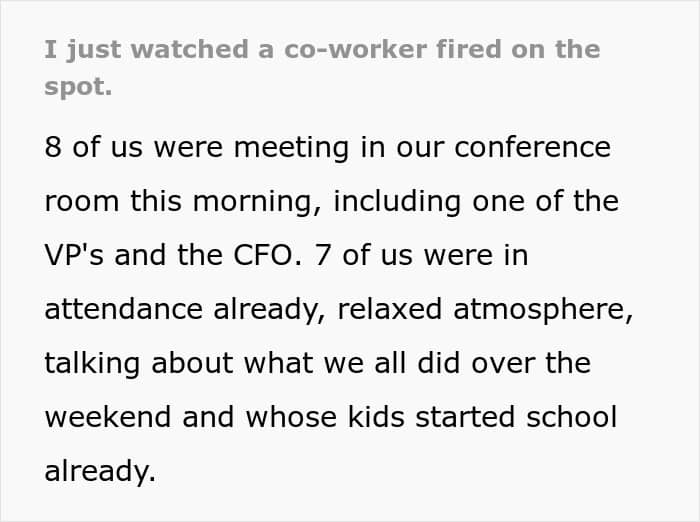



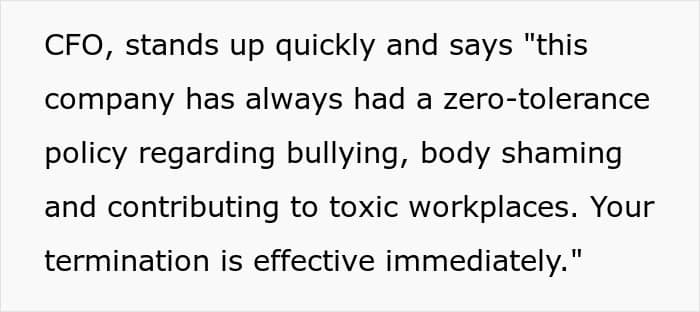
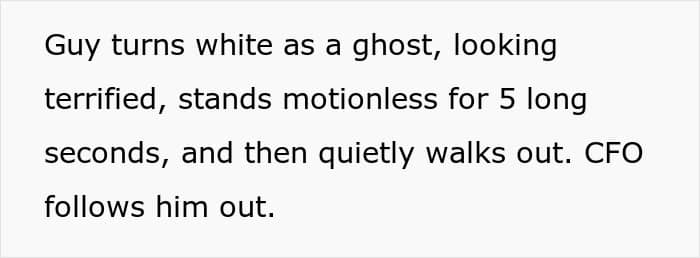
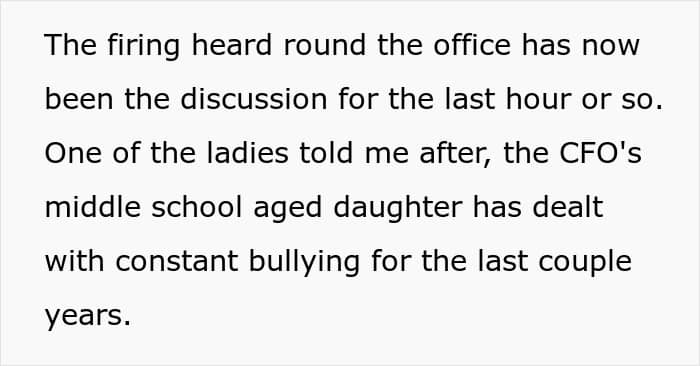
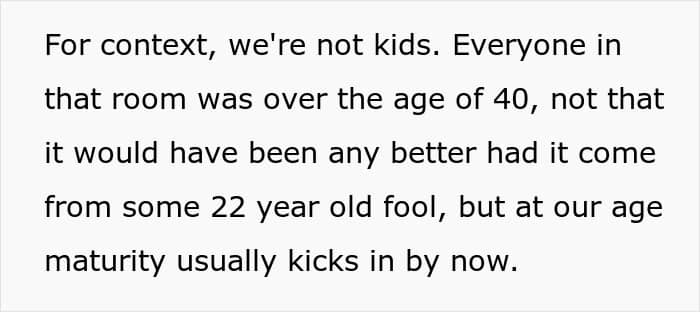
Inappropriate comments are often disguised as ‘office banter’

Commenters divided into two camps: the first believed that such comments were inappropriate in a workplace, let alone during a meeting with the higher-ups. Others, however, thought that this was just a simple case of workplace banter, and everyone was being too sensitive.
Yet discrimination or harassment often starts off as simple office banter. More and more people are willing to speak up when colleagues say something inappropriate. In the UK, the Employment Tribunal saw a 45% increase from 2020 to 2021 in cases that cited “banter” in the workplace. In 2024, the tribunal recorded57 related cases.
According to HR Acuity, body shaming falls under the category of ‘verbal harassment’ that should not be tolerated at work. At the same time, it isn’t necessarily illegal and might not count as workplace discrimination.
The problem with workplace banter is that determining what kinds of comments are appropriate can be a gray area. In California, for example, there’s the Fair Employment and Housing Act (FEHA).
Making comments about a coworker’s body could then be interpreted as gender-based discrimination. Based on assumptions about body size or shape, one could interpret fat-shaming as sexist discrimination.
Weight-shamers can also get in trouble under the Americans with Disabilities Act (ADA). If a person’s health condition affects their weight, fat-shaming would violate anti-discrimination laws. Weight gain also happens during pregnancy, and negative comments regarding one’s weight are also prohibited due to pregnancy discrimination.
One way to gauge whether comments are inappropriate is to consider context such as the company culture. A British solicitor, employment law & HR specialist Tom Clarke writes of one case where a claimant who was called a “fat, ginger pikey” failed.
“It was found that the office culture normalised banter and the claimant himself had been involved in similar behaviour, so couldn’t establish that it was unwanted.”
Management needs to ensure that workplace culture is about respect

Some would consider workplaces where name-calling and body-shaming are rampant to be toxic. What’s more, the APA’s 2024 Work in America Survey foundthat 15% of American employees think of their workplace as toxic.
While there may be many reasons why a company’s environment is toxic, experts say that it usually comes from the top. Employers have to provide a safe and respectful work environment. And making sure no employee is bullied or harassed can only benefit companies.
Compliance training and solutions provider Safetrac detailshow bullying and harassment impact employee morale and productivity:
In an environment where bullying is rampant and goes unpunished, employees might be scared to speak up, distrust their managers, and become disengaged in their jobs.Employees become less productive. Bullying makes workers distracted, stressed, and causes them to lose focus. They make more errors, accomplish fewer tasks, or even stop coming to work.Turnover rates become high. Word gets around quickly, and nobody wants to work at a company where employees are disrespected. Newcomers leave quickly because they’re not about to tolerate inappropriate behavior. This costs the company money in the form of recruiting, onboarding, and training. Not to mention the company’s reputation.Many people thought that the guy got what he deserved



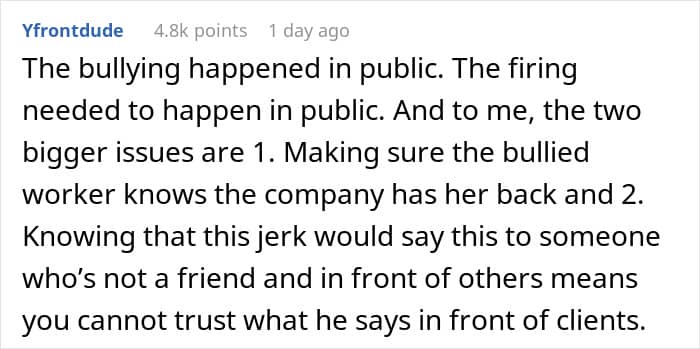






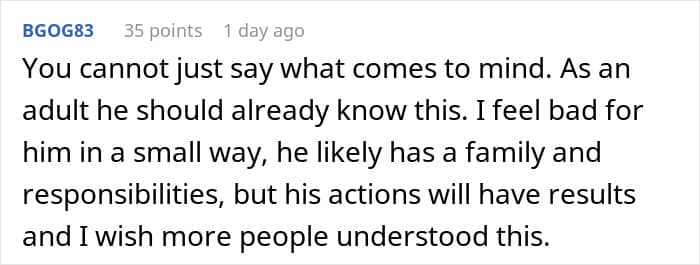


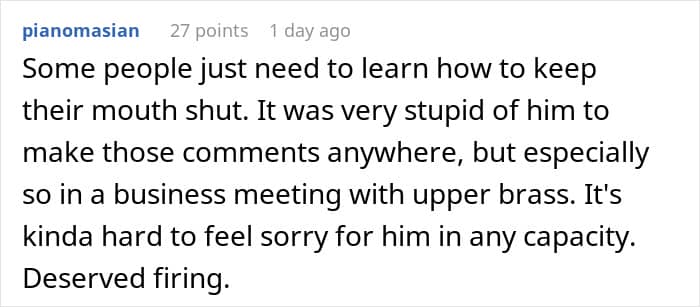
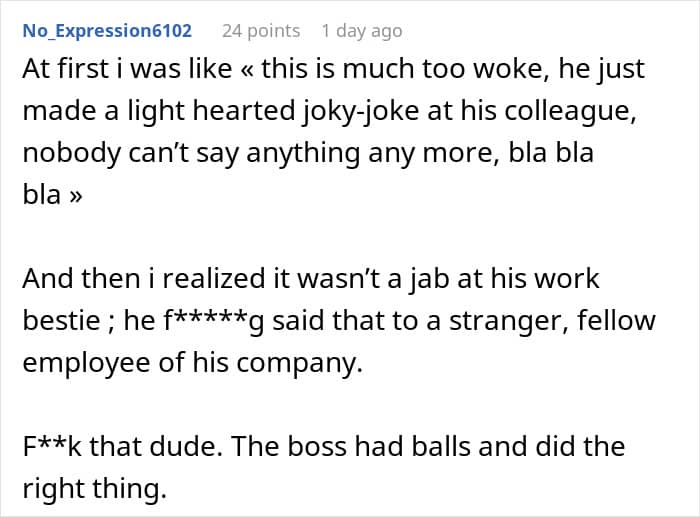







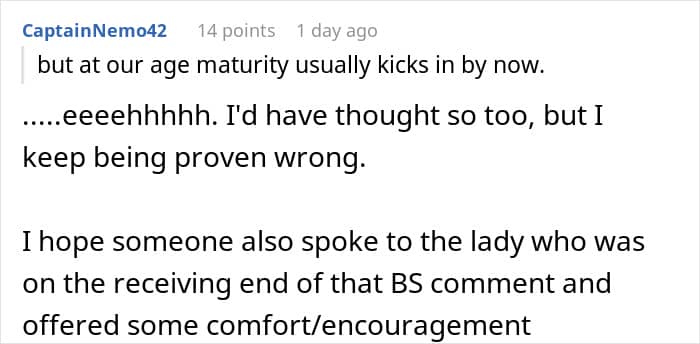
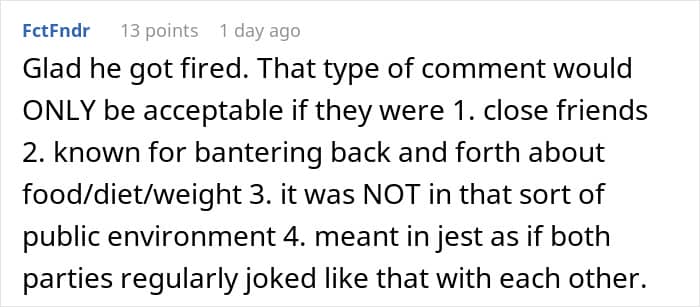

However, others thought that firing was too harsh a punishment





Others shared similar instances they’ve experienced at work


